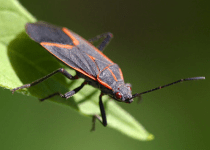Which Dogs Bite the Most |Top 10 Dog Breeds Bite the Most
Which Dogs Bite the Most |Top 10 Dog Breeds Bite the Most.Interested in which dog breeds are likely to bite? In this article, we’ll look at the statistics and research on dog bites by breed, and we’ll provide tips for preventing bites.
Table of Contents
Introduction
The belief is that some breeds of dogs bite more than others, but is this true? Some breeds indeed tend to bite more than others, but it’s equally important to know that any dog, regardless of breed, can bite.
We will examine the data on dog bites by breed in this article, and we will offer tips on how to prevent bites no matter what breed you have.
Which dogs bite the most?
Any breed of dog can bite under certain circumstances, regardless of breed. It is not accurate or fair to say any particular breed bites the most.
A dog’s likelihood of biting depends on its training, socialization, and abuse or neglect history.
As far as dog bites are concerned, the breed is just one of the factors that need to be considered.
Other factors, such as the size of the dog and the circumstances surrounding the bite, may also be relevant. When a dog feels threatened or is trying to defend its territory, it may bite more, while a larger dog may bite more if it is not properly socialized or trained.
Top 10 dog breeds bite the most:
1. Rottweilers:
The prevalence of dog bites by breed should be considered in light of the available data and research. In a study, Rottweilers were found to cause a higher number of dog bites than other breeds in the United States.
However, this study did not take into account the number of Rottweilers in the overall dog population, so the data may not be representative of the breed as a whole.
2. German Shepherds:
It is a common belief that German Shepherds are more likely to bite than other breeds, despite their intelligence, loyalty, and trainability.
A study found that German Shepherds were responsible for a higher number of dog bites than other breeds in the United States.
The data and research available on the subject should be considered to understand the prevalence of dog bites by breed.
This study did not take into account the number of German Shepherds in the overall dog population, so the findings may not reflect the breed in its entirety.
3. Chihuahuas:
Dog breeds such as Chihuahuas do not bite the most. The dog breed is only one factor to consider when it comes to dog bites, and it is not a reliable predictor of a dog’s likelihood of biting. Dog bite data is inconclusive and often misunderstood.
In a study of dog bites in the United States, Chihuahuas were found to cause more bites than other breeds. Nonetheless, this study did not take into account the number of Chihuahuas in the overall dog population, and other factors such as the dog’s socialization, training, or history of abuse or neglect might have contributed to the bites.
A dog, regardless of breed, can bite under certain circumstances, regardless of its breed. It is up to the owner to properly care for and train their dog to prevent bites.
The likelihood of a dog biting depends on the individual dog’s training, socialization, and history of abuse and neglect. The best way to find a reputable breeder or rescue organization if you are considering adopting a dog is to research the breed and understand its characteristics and needs.
4. Terriers:
It is important to remember that the breed of a dog is only one factor to consider when it comes to dog bites, and it is not a reliable predictor. Data on dog bites by breed is inconclusive and often misinterpreted.
The terrier breed consists of a group of dogs that were originally bred to hunt small game, and they are known for their playful personalities. However, this does not mean they are as inclined to bite as other breeds.
A dog, regardless of breed, can bite under certain circumstances, regardless of its breed. It is up to the owner to properly care for and train their dog to prevent bites. The likelihood of a dog biting depends on the individual dog’s training, socialization, and history of abuse and neglect.
The best way to find a reputable breeder or rescue organization if you are considering adopting a dog is to research the breed and understand its characteristics and needs.
5. Dalmatians:
Despite Dalmatians’ lively personalities and their distinctive black-and-white spots, they are not more likely to bite than other breeds because they possess a strong sense of self-preservation.
A dog, regardless of breed, can bite under certain circumstances, regardless of its breed. It is up to the owner to properly care for and train their dog to prevent bites. The likelihood of a dog biting depends on the individual dog’s training, socialization, and history of abuse and neglect.
The best way to find a reputable breeder or rescue organization if you are considering adopting a dog is to research the breed and understand its characteristics and needs.
6. Cocker Spaniels:
According to a recent study, Cocker Spaniels are three times more likely than any other dog breed to bite. Cocker Spaniels are the most popular breed of dog in the U.S. and also bite the most frequently.
Cocker Spaniels likely bite more than other breeds for a variety of reasons. For example, they are often bred to hunt, and their instinct is to chase and catch prey. This instinct can sometimes lead to them biting people, especially when they feel threatened.
As cocker spaniels are often very protective of their families and homes, they may bite if they feel threatened. Furthermore, if Cocker Spaniels are not socialized properly, they may become aggressive.
It is important to be aware of the breed’s tendency to bite if you are considering getting a Cocker Spaniel. Be sure to socialize and train your dog well, and never leave them unsupervised with children or animals.
When you take proper precautions, you can enjoy your Cocker Spaniel as your loving and loyal companion.
7. Cocker Spaniels:
As well as being the most popular breed of dog in the United States, Cocker Spaniels are also the most likely to bite.
A study by the American Veterinary Medical Association found that Cocker Spaniels bit more people than any other breed in 2016. This is likely due to their popularity; there are more chances for them to bite if there are more Cocker Spaniels in homes.
Despite this, it is important to remember that any dog can bite and that responsible ownership is the best way to prevent bites.
8. Tosa Inu:
The Tosa Inu is considered to be one of the most aggressive breeds of dogs, and they bite people more than any other breed. Even though the Tosa Inu is not the largest breed of dog, it has the power to cause serious damage.
Families with small children are not recommended to have Tosa Inu dogs because they may be very dangerous.
9. Dobermans:
It is for good reason that Dobermans are often considered to be the most dangerous breed of dog. Dobermans have strong jaws and are known for being aggressive, so they are more likely to bite than other breeds.
Even so, it’s important to keep in mind that any dog can bite, and aggression is not restricted to Dobermans. If a dog is not properly socialized and trained, it can be aggressive regardless of its breed.
10. Pit Bulls:
The pit bull breed is often portrayed as aggressive and more likely to bite than other breeds, but there is no evidence that pit bulls bite more than other dogs. Any dog can be aggressive and bite, regardless of breed.
Dogs can become aggressive and bite for a variety of reasons. For example, they may lash out if they are not properly socialized. Additionally, they may bite if they feel threatened.
There have been a lot of negative things said about pit bulls in recent years, but it is important to remember that any dog can be aggressive. If you are concerned about a particular dog, you should keep your distance.
Conclusion
It is inaccurate to say that any particular breed of dog bites the most. The dog breed is only one factor to consider when it comes to dog bites, and it cannot be used as a reliable predictor of the likelihood that a dog will bite. Dog bite data by breed is inconclusive and is often misunderstood.



